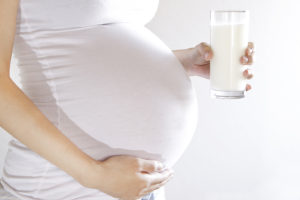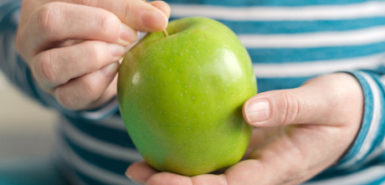
Maybe you’ve heard a few of these old wives’ tales about food and pregnancy:
- You’re pregnant—now you can eat for two.
- You are what you eat.
- Eating crab might make your baby mischievous.
- Craving sweets? It’s a girl.
None of these are accurate, of course, except maybe the second one. There is some substance to the notion that “we are what we eat.” Proper nutrition during pregnancy is critical because you are growing another human being.
In previous stories, we’ve looked at the importance of folic acid and healthy carbs. Now we’ll take a look at protein and its role in fetal growth.
Building blocks
A 2013 study in the Journal of Health, Population and Nutrition looked at the effects of milk and protein consumption on fetal growth during the third trimester. The researchers analyzed 504 ultrasounds from 156 women, ultimately finding that maternal milk and protein intake highly influenced the rate of growth.
Women who consumed about 5 to 16 ounces of milk per day recorded “higher and better” fetal growth, the study found.
The researchers also found that most of the participants consumed 50 to 70 grams of protein daily. The women who consumed this quantity had fetal ultrasound measurements that were higher, on average, than those who consumed less protein.
Protein is a word we hear a lot about these days. It’s often featured in news stories that examine high-protein diets.
But what does it do? Well, it helps form the cells in your body and in your growing baby’s body.
In a paper provided to moms at Spectrum Health Gerber Memorial, Tami Michele, DO, wrote: “Proteins consist of amino acids, which are the building blocks of new tissue necessary to grow a baby and to maintain your healthy body.”
Protein also helps in the development of baby’s brain. It helps mom’s blood volume increase, too, and it affects the growth in her uterus and breast tissue.
We need about 80 to 100 grams of protein per day, according to Dr. Michele.
What foods are high in protein? Let’s take a look.
- Meat. You may think of meat right off the bat, and you’d be right. Lean meats like chicken, fish, pork and venison are great protein sources. (We’ve previously explored the many benefits of fish.)
- Dairy. Dietary plans often recommend 2 percent milk. Skim milk is not recommended. Pregnant women need fat, but not the amount found in whole milk, which is 3.5 percent milk fat by weight. Milk also gives you calcium, which is important for bone health in mom and baby.
- Whey protein. You can add the protein powder to a smoothie with fruit, yogurt and greens. The powder I use has 24 grams of protein. If you’re pregnant and you have two of these smoothies each day, that’s about half your daily protein needs. By adding the other items, you also get your fruits and veggies.
- Nuts and nut butters. Nuts, nut butters, peanut butter and almond butter can all provide a sizable amount of protein. These items taste great on celery, apples and more.
Apart from protein, pregnant moms should keep an eye on a few other dietary elements.
Calcium
Calcium helps with teeth and bone development in baby, as well as overall health in mom. It is an absolutely essential mineral for the growth of a healthy baby.
Did you know your baby will take calcium from you if you’re not getting enough? Your recommended daily intake is 1,000 milligrams.
High-calcium food options include dark leafy greens, cheese, yogurt, almonds, orange juice with calcium, sardines, beans and lentils, nuts and seeds and whey protein, to name just a few.
Iron
Many women struggle with their iron levels in pregnancy. When you are pregnant, the recommendation for iron increases to 27 milligrams per day, up from 18 milligrams.
Your blood volume increases during pregnancy and iron helps by building your blood cells.
Foods high in iron include red meat, leafy greens, nuts, beans, egg yolks and items fortified with iron, including breads and cereals.
 /a>
/a>
 /a>
/a>
 /a>
/a>